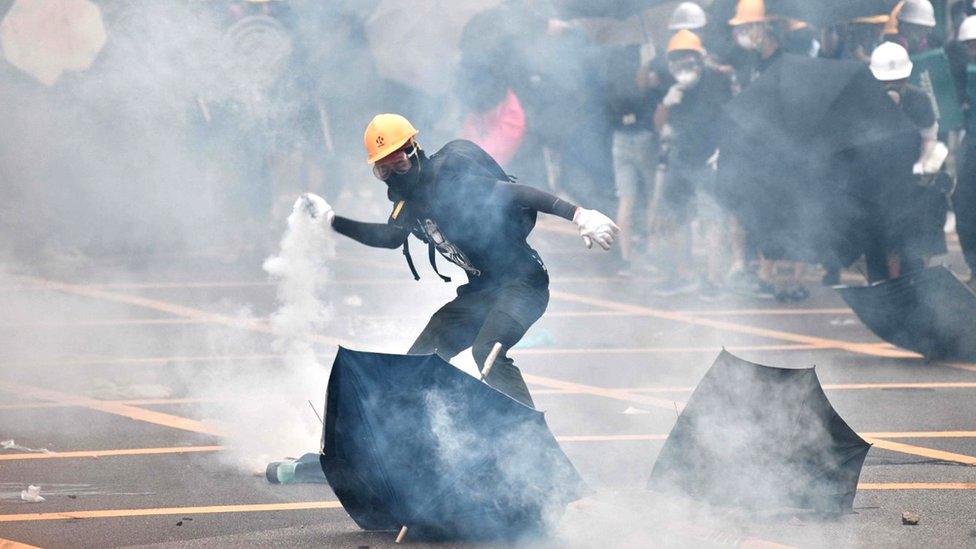Hong Kong protest: City reels from 'one of its most violent days'
- Published
Footage of the shooting shows the police officer fire one bullet at close range
The 70th anniversary of Communist Party rule in China was "one of Hong Kong's most violent and chaotic days", the city's police chief has said.
An 18-year-old protester was shot in the chest with a live bullet - one of six live rounds fired by police.
Protesters - some armed with poles, petrol bombs and other projectiles - fought pitched battles with police in several parts of Hong Kong.
In all police made 269 arrests, more than on any day since protests began.
Those detained ranged in age from 12 to 71. More than 100 people were taken to hospital and 30 police were injured.
Tuesday's unrest saw police fire 900 rubber bullets and 1,400 rounds of tear gas. That compares with 1,000 tear gas canisters fired in the first two months of protests.
In the days leading up to the anniversary, tensions were high in Hong Kong, which always sees protests on National Day.
This year, however, Hong Kong has seen four months of protests sparked by proposed changes to an extradition bill. Though the changes have been abandoned, the unrest has continued, expanding into demands for greater democracy.
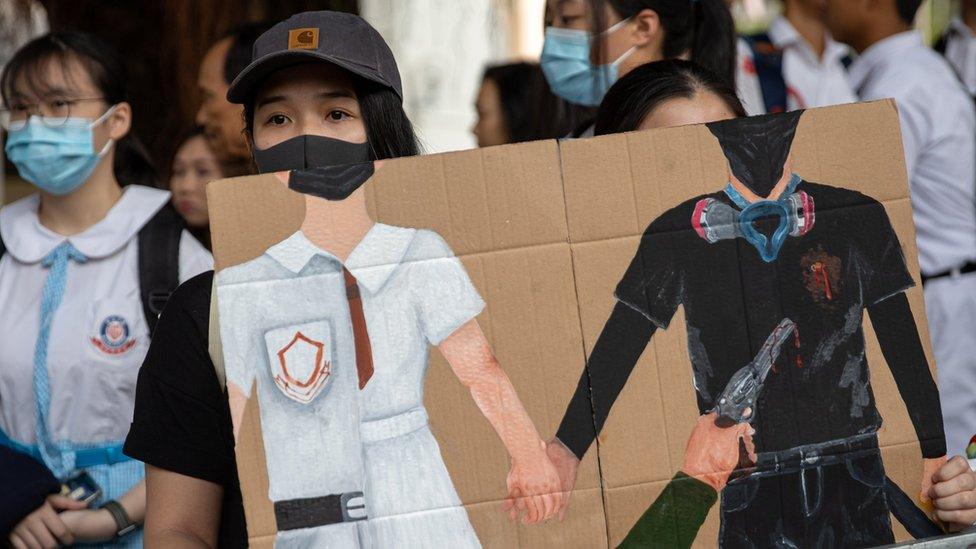
Students at Tsuen Wan Public Ho Chuen Yiu Memorial College show solidarity with the protester who was shot
The shooting of Tsang Chi-kin, who was attacking an officer with a pole, was captured on video and shared online.
"My chest is hurting, I need to go to hospital," said the 18-year-old, who was arrested after being shot. The government said he was now in a stable condition.
Although people have been shot with rubber bullets in previous protests, this was the first injury from a live round.
Police chief Stephen Lo said firing the bullet was "lawful and reasonable" as the officer thought his and colleagues' lives were under threat.
Asked why the bullet was fired at close range, Mr Lo said: "He [the officer] did not decide the distance between him and the assailant."
Hundreds of people staged a peaceful sit-in outside the teenager's school on Wednesday.
Meanwhile, 96 people, mostly students, who had been arrested on Sunday appeared in court charged with rioting.
Repairs to shops, businesses and public facilities - including the mass transit system - are under way following Tuesday's violence. All metro stations are now open.
What made Tuesday different?
In Beijing, the anniversary of Communist Party rule saw a parade of Chinese military might: 15,000 troops, 580 vehicles and missiles, and 160 aircraft.
In Hong Kong, some 1,200 miles away, protesters marked the day very differently.
Peaceful marches soon exploded into violence. BBC reporter Tessa Wong, who was on the streets, said protesters fought "pitched battles" with officers.
Shortly before Tsang Chi-kin was shot, men wearing helmets and gas masks attacked an officer on the ground with a pole.
An officer responded by firing his gun at close range.
Elsewhere, protesters threw petrol bombs, started fires, and ran at officers. Police responded with water cannon, tear gas, and - in total - six live rounds.
The day saw the highest number of arrests since this year's protests began, and the highest number of live rounds fired.
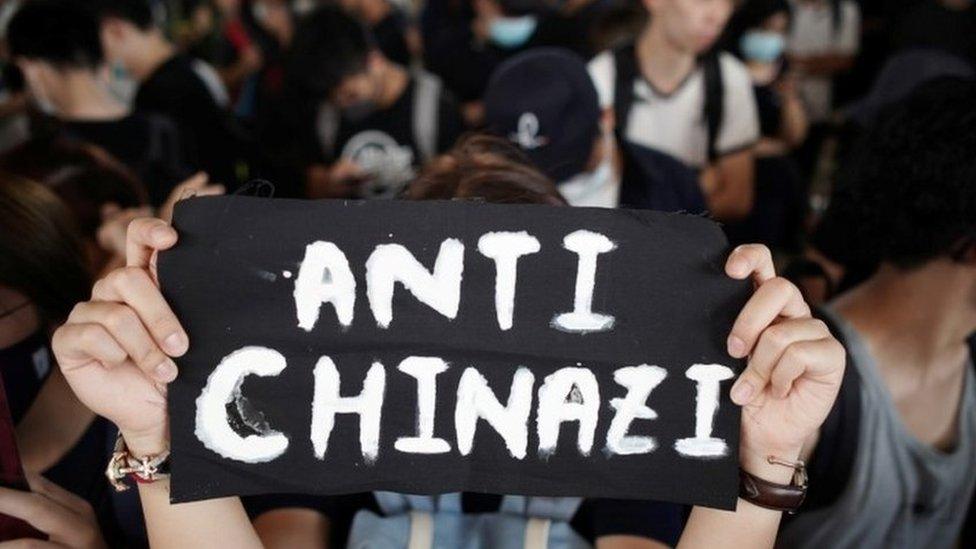
A woman at West Kowloon Law Courts on Wednesday, before 96 anti-government protesters arrested on Sunday were due to appear
What explains the anger?
The protests were sparked earlier this year by a proposed law, which would have allowed extradition from Hong Kong to the Chinese mainland.
Opponents thought this would put Hong Kongers at risk of unfair trials, and, in July, Hong Kong leader Carrie Lam said the law "was dead".
But despite the law being withdrawn, the protests have continued every weekend.
Clashes between police and protesters have created their own momentum, and there is wider discontent too.
Recent years have seen growing opposition to the perceived encroachment of Beijing on Hong Kong's politics and threats to local identity.
Many young people have economic worries, and there are also demands for universal suffrage for elections to Hong Kong's parliament.
As China showed off its superpower status in Beijing, violence in Hong Kong - a special administrative region of China - was inevitable.
What is the background?
Until 1997, Hong Kong was a British territory. Since then, it has been part of China but with its own system of law and government - known as One Country, Two Systems.
Hong Kong has its own judiciary and a separate legal system. Rights including freedom of assembly and freedom of speech are protected.
But those freedoms - the Basic Law - expire in 2047. It is not clear what Hong Kong's status will be then.
How Hong Kong got trapped in a cycle of violence
- Published28 November 2019
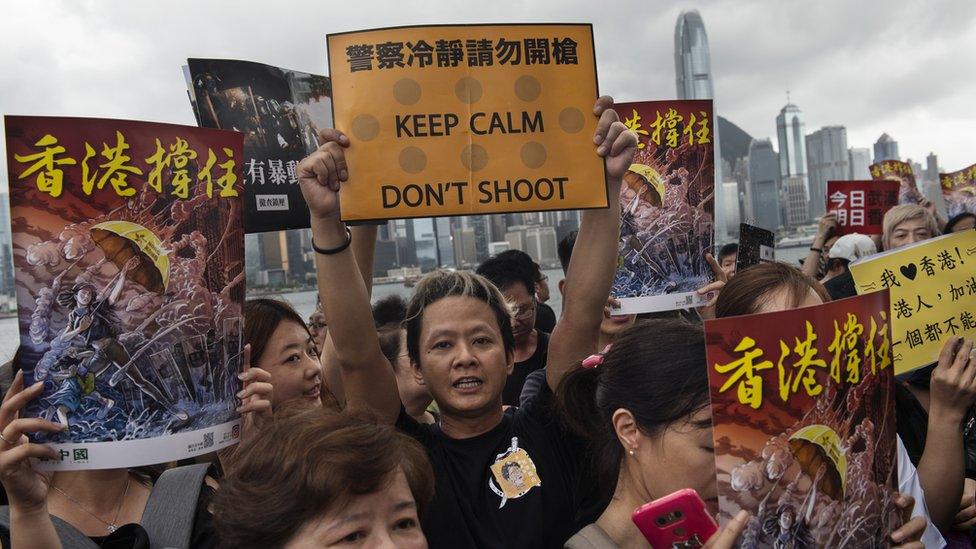
- Published1 October 2019
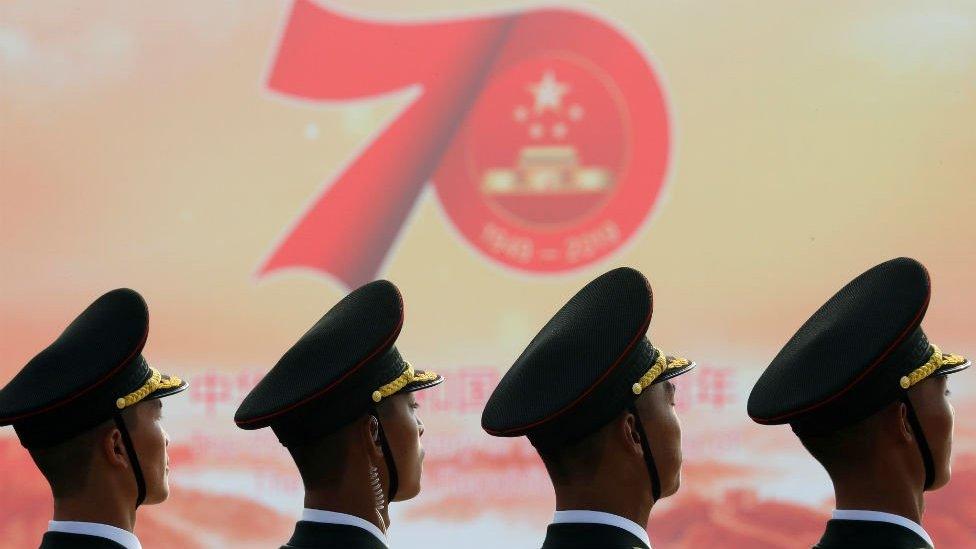
- Published1 October 2019
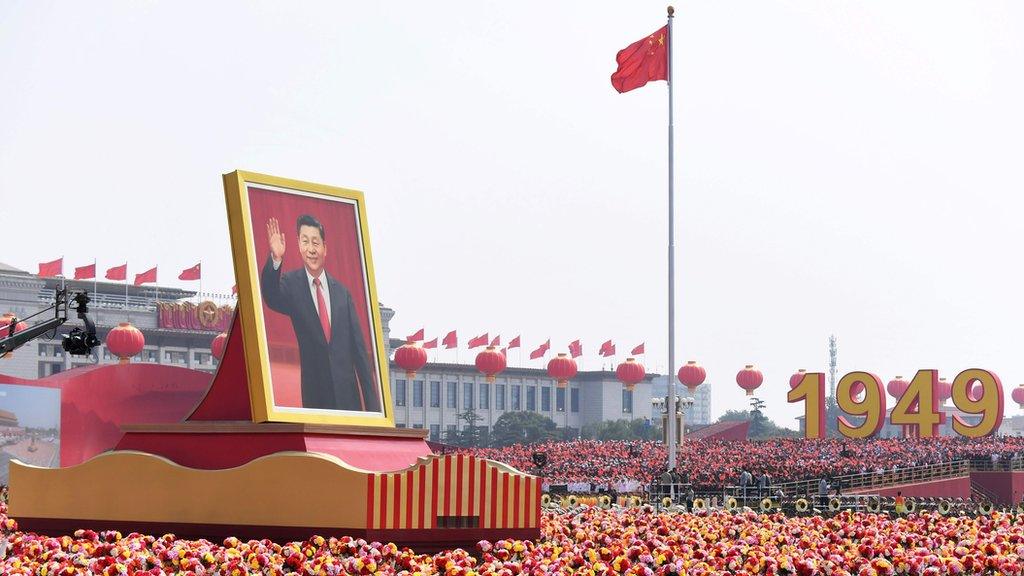
- Published4 September 2019
